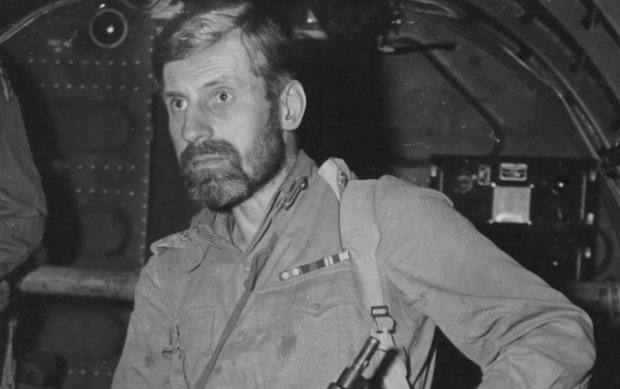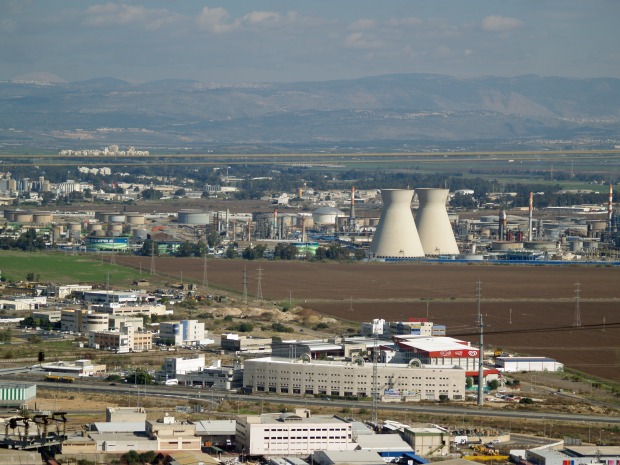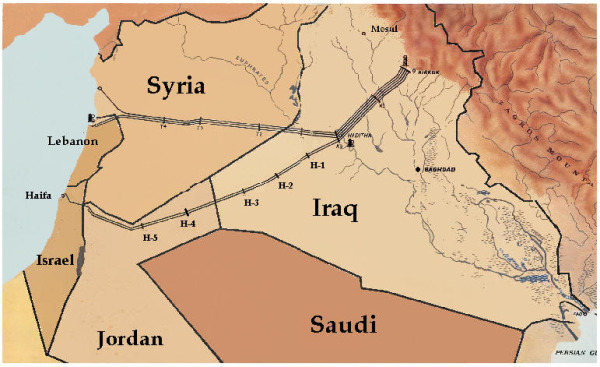Oil and water don’t mix, but business and politics do, judging by the 942 kilometre-long oil pipeline from Kirkuk in Iraq to Haifa in Palestine, construction of which was completed in the mid-1930s.
Built by the Iraq Petroleum Company and operational from 1935 to 1948, the strategically important pipeline drove British policy in the Middle East and influenced the ways in which borders were drawn and nations like Iraq, Jordan and Israel were established, University of Illinois scholar Rachel Hevrelock said in a lecture at The Centre for Jewish Studies at the University of Toronto on Sept. 8.
The Iraq Petroleum Company, headquartered in London and originally known as the Turkish Petroleum Company, was founded before World War I by a consortium consisting of the Deutsche Bank of Germany, Royal Dutch/Shell of Holland and Britain, the National Bank of Turkey and the Armenian businessman Calouste Gulbenkian.
The company was created to extract oil in Mesopotamia, which was then part of the Ottoman Empire and which would become Iraq. Foreign corporations won concessions to oil fields there before 1914 and held on to them after the great war broke out.
According to Havrelock, British Petroleum and other major oil companies were initially drawn to Iraq to restrict the flow of crude to keep prices artificially high.
In 1916, under the Sykes-Picot agreement, Britain and France staked out their respective claims to territory controlled by the Ottomans, including the lucrative oil fields in what would be Iraq, said Havrelock, a professor of Jewish studies and English who’s writing a book about the pipeline.

Lawrence of Arabia, the legendary British colonial official who led the Arab revolt against the Ottoman Empire, drew up a plan for an oil pipeline from Kirkuk to Haifa.
It would be the world’s first transnational oil pipeline. A branch would run to Tripoli, Lebanon.
The pipeline demarcated Iraq from Syria — which were administered by Britain and France under League of Nations mandates — and this arrangement played a vital role in determining the future borders of these Arab states.
During the Palestinian nationalist revolt from 1936 to 1939 against British rule in Palestine, Palestinians tried to sabotage the pipeline. A British force, commanded by Orde Wingate and made up of Jewish fighters like Moshe Dayan, was created to protect it.

During World War II, the pipeline provided much of the fuel needs of British and U.S. military forces in the Mediterranean.
On the eve of Israel’s statehood, the Irgun, the military arm of the Zionist revisionist movement, launched attacks on the pipeline.
Britain built air force bases adjacent to the pipelines’ pumping stations. The bases were eventually taken over by Iraq, Jordan and Israel. Israeli aircraft bombed H-2, one of the Iraqi bases, during the 1967 Six Day War.
Oil transported to Palestine, via the pipeline, was refined in Haifa by Jewish and Arab workers. It was then shipped to refineries in Europe. In the months leading up to the 1948 Arab-Israeli war, clashes broke out between Arabs and Jews who worked in the refinery.

The pipeline lost its relevance in 1948 when Iraq cut off oil shipments to Haifa, but the refinery never stopped producing oil for Israel, Havrelock said.
In 1972, the Iraqi government nationalized the oil industry.
Islamic State — the Sunni jihadist organization that has wreaked havoc in Iraq and Syria of late — currently controls a portion of the oil sources that once fed the Kirkuk-Haifa pipeline.
With Kurdish forces in northern Iraq having recently sold oil from the Kirkuk wells to Israel — which has recognized the Kurds’ quest for national independence — the story of the Kirkuk-Haifa pipeline seems to have come full circle.

